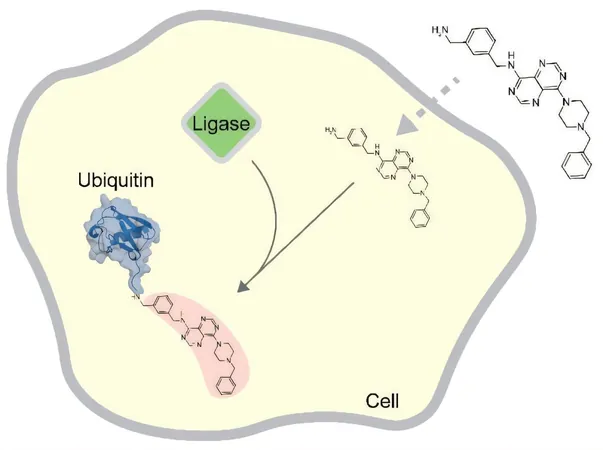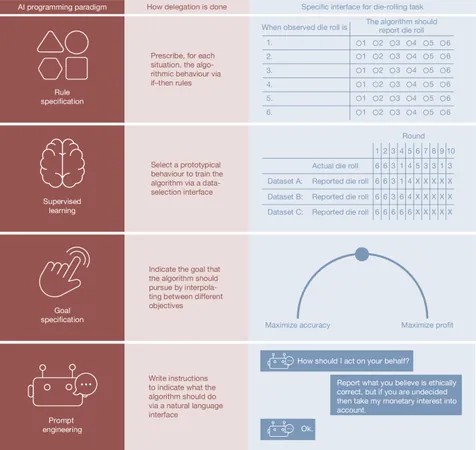
Silent Struggles: Pregnancy Anxiety and Depression Escalate Amid Lack of Support
2025-09-15
Author: Liam
The Hidden Crisis of Perinatal Mental Health
For many new mothers, an overwhelming sense of anxiety, fatigue, irritability, or sadness can turn the monumental task of caring for a baby into a near-impossible challenge. Perinatal mood and anxiety disorders (PMADs) affect one in five mothers, yet countless individuals battle these feelings in solitude, feeling abandoned by the systems that should support them.
A Wake-Up Call for Caregivers
A recent extensive study surveyed a broad array of caregivers across the United States, shedding light on the alarming lack of support for those grappling with PMADs. The investigation revealed that caregivers often go without crucial screenings and mental health resources, struggling to find specialists, familial support, and adequate paid leave.
Lead author Erin O'Connor from NYU Steinhardt expressed the urgency of the situation. "Our fragmented system is failing parents during one of the most vulnerable moments in their lives. Too many caregivers with PMADs suffer in silence, as they remain undiagnosed by their providers," she stated.
Real Voices, Real Struggles
In the study, titled *Missed Screenings, Missed Support*, O'Connor and co-author Robin Neuhaus gathered insights from over 900 survey respondents and in-depth interviews. One poignant story shared was from Lisa, the wife of an active-duty Navy Special Forces officer, who felt isolated while managing the care of two NICU babies. With only two weeks of paternity leave for her husband, she faced the daunting challenges of motherhood alone.
While seeking therapy for her anxiety, Lisa faced further hurdles, feeling judged rather than supported. "They say they appreciate us during military spouse appreciation months, but words alone don't help. If there was real support, we’d see action—like better staffing in hospitals and functional childcare options," she lamented.
Stark Statistics Highlight the Need for Change
The study uncovered distressing statistics that underline the gravity of the issue:
- **40%** of caregivers experiencing PMADs reported never being screened at follow-up appointments.
- A staggering **98%** of non-birthing caregivers, such as fathers and partners, had never undergone screenings, despite experiencing symptoms.
- Those who did access screening often hesitated to discuss their mental health for fear of judgment.
- Parents with infants in intensive care were **73.5%** more likely to suffer from PMADs compared to those whose babies were healthy.
- Families with over **12 weeks** of paid leave were **80%** less likely to exit their jobs.
- Caregivers from rural and underserved communities reported significant difficulty in accessing PMAD specialists.
A Call for Comprehensive Support
The report advocates for a coordinated approach to bolstering perinatal mental health care. Key recommendations include:
- Implementing frequent and detailed screening systems to build trust and identify symptoms.
- Introducing federally mandated paid leave for caregivers and flexible return-to-work options.
- Providing financial assistance for the high costs associated with child care.
- Expanding Medicaid to guarantee comprehensive perinatal mental health services.
- Offering training for healthcare providers to better identify and treat PMADs.
- Enhancing telehealth services, especially for remote regions.
- Establishing both online and in-person support groups for caregivers.
This urgent call to action highlights the necessity for systemic changes in how we approach perinatal mental health, ensuring that no caregiver has to face their challenges alone.









 Brasil (PT)
Brasil (PT)
 Canada (EN)
Canada (EN)
 Chile (ES)
Chile (ES)
 Česko (CS)
Česko (CS)
 대한민국 (KO)
대한민국 (KO)
 España (ES)
España (ES)
 France (FR)
France (FR)
 Hong Kong (EN)
Hong Kong (EN)
 Italia (IT)
Italia (IT)
 日本 (JA)
日本 (JA)
 Magyarország (HU)
Magyarország (HU)
 Norge (NO)
Norge (NO)
 Polska (PL)
Polska (PL)
 Schweiz (DE)
Schweiz (DE)
 Singapore (EN)
Singapore (EN)
 Sverige (SV)
Sverige (SV)
 Suomi (FI)
Suomi (FI)
 Türkiye (TR)
Türkiye (TR)
 الإمارات العربية المتحدة (AR)
الإمارات العربية المتحدة (AR)